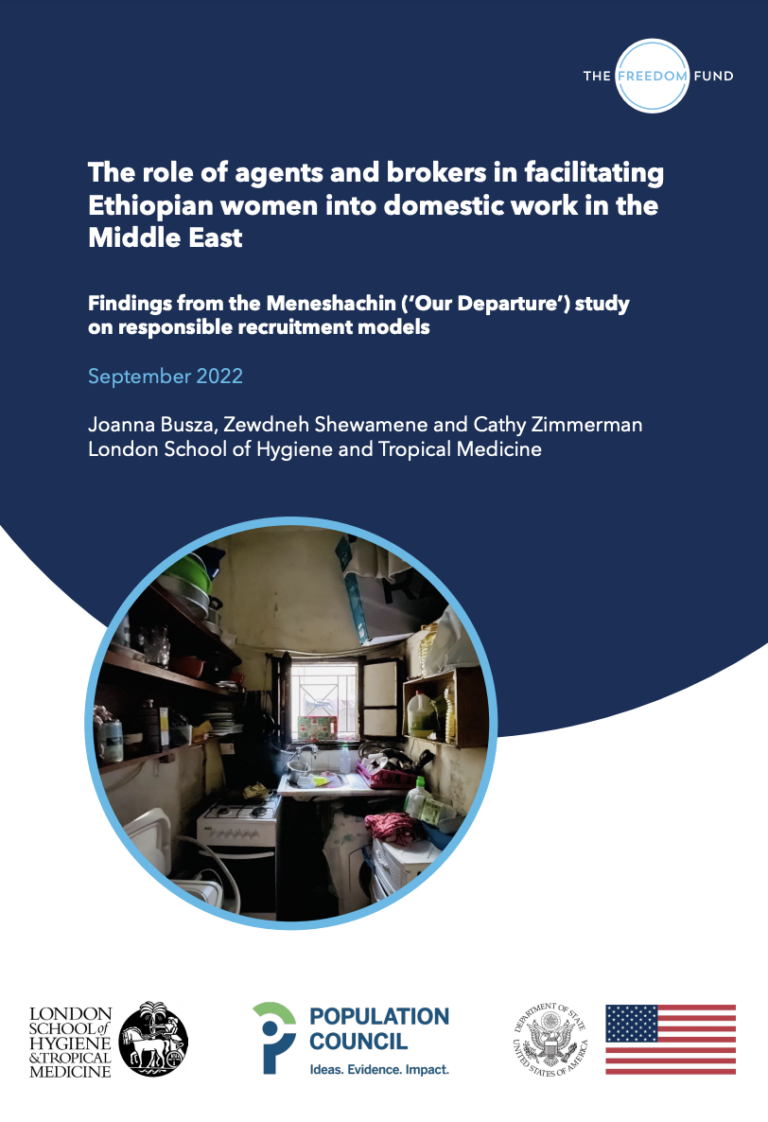Large numbers of Ethiopian women seek domestic work in the “Middle East Corridor”—a signifcant social trend that reflects a key livelihood strategy used by Ethiopian families and communities in the face of widespread poverty (Kuschminder, Andersson and Seigel, 2018; Zewdu, 2018). Due to the large numbers, research related to this type of migration is extensive, but mainly concentrated on the “push” and “pull” factors and the potential risks of labour exploitation, trafficking and resultant threats to migrants’ physical, mental and sexual health (Ayalew and Minaye, 2017; Gezie et al., 2019; Habtamu, Minaye and Zeleke, 2017; Reda, 2018). The research presented here represents one of the few studies examining how women plan their migration experiences, whom they rely on for emotional, economic or practical assistance, and in particular, what roles are played by different formal recruiters and informal brokers in women’s journeys from Ethiopia to their destination countries, as well as their role after arrival and in cases where the women wish to return to Ethiopia.
This report brings together findings from the first two phases of the Meneshachin (‘Our Departure’) qualitative study which examines the practices of recruitment and migration facilitation for women from Ethiopia for the purpose of taking up domestic labour in the Middle East, mainly in destinations such as Saudi Arabia, United Arab Emirates (UAE), Lebanon and Kuwait. Building on Phase I of the study, which involved 69 interviews conducted in Addis Ababa (Busza, Shewamene and Zimmerman, 2021), Phase II of the study focused on the dynamics of migration recruitment, planning and facilitation, from the perspectives of the people most closely involved in the process and located outside of the capital city, Addis Ababa. Qualitative in-depth interviews took place in Bahir Dar Town and Hadiya zone with 87 local migration stakeholders, informal migration facilitators, returnee domestic workers from the Middle East, prospective migrants and parents of migrant women who are currently domestic workers in the Middle East. These study areas were identified in Phase I as typical “sending” communities far from the capital city in which many migrants originate.

